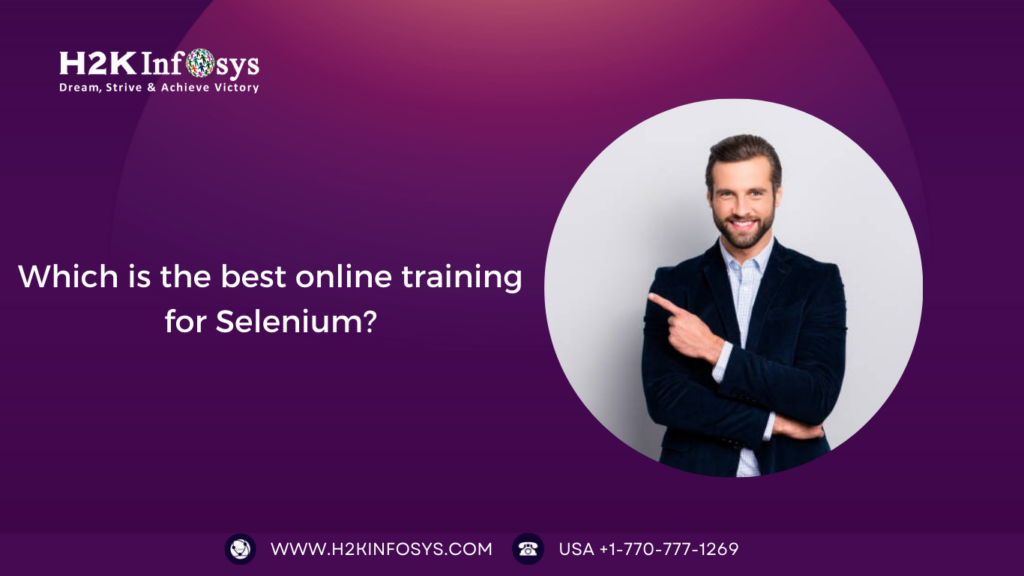Salesforce is one of the world’s leading customer relationship management (CRM) platforms. The Salesforce Administrator Certification is a valuable credential for professionals looking to validate their skills in managing and customizing Salesforce applications. This blog will guide you through the process of obtaining the Salesforce Administrator Certification, from understanding the exam to preparing and passing it.
Overview of the Salesforce Administrator Certification
Salesforce, a leading customer relationship management (CRM) platform, is widely adopted by businesses of all sizes to manage customer data, sales processes, and more. As Salesforce continues to grow in popularity, the demand for skilled professionals who can effectively manage and optimize Salesforce environments has surged. This is where the Salesforce Administrator Certification comes into play.
The Salesforce Administrator Certification is designed to validate an individual’s expertise in Salesforce’s core features and functions. It is intended for professionals who have a fundamental understanding of Salesforce and who are responsible for maintaining and optimizing Salesforce applications. The certification covers a broad range of topics, including:
Organization Setup: Understanding the company profile, user interface, and security settings.
User Management: Managing users, profiles, and permission sets to ensure secure and efficient access.
Standard and Custom Objects: Working with Salesforce’s standard objects (like Accounts and Contacts) and creating custom objects to meet specific business needs.
Sales and Marketing Applications: Implementing and managing sales processes, opportunities, and marketing campaigns.
Service and Support Applications: Managing cases, solutions, and Salesforce Knowledge to enhance customer support.
Activity Management and Collaboration: Utilizing tools like Chatter for effective communication and collaboration.
Data Management: Importing, exporting, and managing data to ensure data integrity and security.
Analytics and Reporting: Creating and managing reports and dashboards to provide actionable insights.
Workflow/Process Automation: Automating business processes using workflows, process builder, and other automation tools.
To earn the Salesforce Administrator Certification, candidates must pass an exam that tests their knowledge and skills in these areas. The exam consists of multiple-choice questions, and it requires thorough preparation to succeed.
Understanding the Salesforce Administrator Role
Before diving into the certification process, it’s essential to understand the role of a Salesforce Administrator. As a Salesforce Administrator, you are responsible for configuring and managing Salesforce to ensure it meets your organization’s needs. Your duties may include user management, data management, security settings, and customization of the Salesforce environment.
Benefits of Salesforce Administrator Training Certification
Achieving the Salesforce Administrator Certification offers numerous benefits, both professionally and personally. Here are some of the key advantages:
Validation of Skills: The certification serves as a formal recognition of your Salesforce expertise. It demonstrates to employers and peers that you possess the necessary skills to manage and optimize Salesforce environments effectively.
Increased Job Opportunities: Certified professionals are in high demand. Many organizations specifically seek Salesforce-certified administrators to ensure their Salesforce implementations are managed by knowledgeable and skilled individuals.
Higher Earning Potential: Salesforce-certified administrators often command higher salaries compared to their non-certified counterparts. The certification can open doors to better-paying job opportunities and promotions.
Career Advancement: The certification can accelerate your career progression. It positions you as a credible and capable professional, making you a strong candidate for advanced roles and responsibilities within your organization.
Enhanced Knowledge: Preparing for the certification exam involves comprehensive learning and hands-on practice. This process enhances your understanding of Salesforce, enabling you to leverage its full potential for your organization.
Networking Opportunities: Being part of the Salesforce community provides access to a vast network of professionals. This network can offer support, share knowledge, and present opportunities for collaboration and growth.
Job Security: As businesses increasingly rely on Salesforce for their CRM needs, the demand for skilled administrators continues to rise. This demand translates to greater job security for certified professionals.
Career Opportunities and Advancements
The Salesforce Administrator Certification opens the door to a wide range of career opportunities and advancements. Here are some of the potential career paths and roles for certified professionals:
Salesforce Administrator: As a certified Salesforce Administrator, you can manage and optimize Salesforce environments, ensuring the system meets business requirements. This role involves configuring Salesforce, managing users, and maintaining data integrity.
Salesforce Business Analyst: Combining Salesforce expertise with business analysis skills, you can help organizations identify their CRM needs and translate them into effective Salesforce solutions. This role often involves working closely with stakeholders to gather requirements and implement changes.
Salesforce Consultant: As a consultant, you can work with various clients to implement and customize Salesforce solutions. This role requires in-depth knowledge of Salesforce and the ability to tailor the platform to meet specific business needs.
Salesforce Project Manager: With your Salesforce knowledge and project management skills, you can oversee Salesforce implementation projects, ensuring they are delivered on time and within budget. This role involves coordinating with different teams and managing project timelines.
Salesforce Developer: If you have coding skills, you can expand your role to include development tasks. Salesforce Developers create custom applications and integrations using Salesforce’s development tools and APIs.
Salesforce Trainer: Sharing your expertise, you can train other professionals on how to use and manage Salesforce effectively. This role involves creating training materials and conducting workshops or training sessions.
Advanced Certifications: The Salesforce Administrator Certification can serve as a stepping stone to more advanced certifications, such as the Salesforce Advanced Administrator, Salesforce Platform App Builder, or Salesforce Architect. These advanced certifications can further enhance your career prospects and earning potential.
Real-World Impact and Success Stories
The real-world impact of obtaining a Salesforce Administrator Certification can be illustrated through success stories from professionals who have transformed their careers. For instance, consider the case of Jane, who started her career as a sales representative. After noticing the growing importance of Salesforce in her company, she decided to pursue the Salesforce Administrator Certification. With dedicated study and hands-on practice, Jane passed the exam and earned her certification.
Armed with her new credentials, Jane was promoted to a Salesforce Administrator role within her company. She was now responsible for managing the Salesforce platform, optimizing sales processes, and providing insights through detailed reports and dashboards. Her expertise not only improved the efficiency of her team but also led to significant revenue growth for the company.
Jane’s story is just one example of how the Salesforce Administrator Certification can catalyze career growth and bring tangible benefits to both individuals and organizations. Many professionals have leveraged this certification to transition into more fulfilling and lucrative roles, showcasing the value and impact of being a certified Salesforce Administrator.
Prerequisites and Skills Required
Before you start preparing for the Salesforce certification course it’s essential to have a solid understanding of the Salesforce platform. Here are some prerequisites and skills you should have:
- Experience: At least 6 months of hands-on experience with Salesforce.
- Knowledge of Salesforce Concepts: Understanding of Salesforce basics, such as objects, fields, data management, and security settings.
- Problem-Solving Skills: Ability to troubleshoot and resolve issues within Salesforce.
Analytical Skills: Ability to analyze business requirements and translate them into Salesforce solutions.
Salesforce Administrator Skills
User Management and Security: A Salesforce admin might be tasked with onboarding a new sales team. This involves creating user accounts, assigning appropriate roles and profiles, and ensuring that each team member has access to the necessary data without exposing sensitive information. By leveraging permission sets and sharing rules, the admin can customize access controls to fit the specific needs of the team.
Data Management: Consider a scenario where the marketing department needs to import a list of leads from a recent trade show. The Salesforce admin ensures that the data is clean before import, maps fields correctly, and uses data validation rules to maintain data quality. Deduplication tools are employed to avoid duplicate entries, ensuring that the CRM remains accurate and reliable.
Customization and Configuration: An organization might need a custom object to track partner relationships. The Salesforce admin creates the object, configures the necessary fields, sets up page layouts, and implements validation rules to ensure data accuracy. This customization allows the organization to track partner interactions and performance more effectively.
Reports and Dashboards: The sales manager needs a dashboard to monitor the team’s performance in real-time. The Salesforce admin creates custom reports to track key metrics such as lead conversion rates, sales pipeline status, and customer satisfaction scores. These reports are then compiled into a dashboard that provides actionable insights, enabling the manager to make informed decisions.
Workflow Automation: A common task for a Salesforce admin is automating the follow-up process for customer service inquiries. Using Salesforce Flow and process builder, the admin sets up automation that triggers follow-up emails to customers once a service case is closed. This ensures timely communication and enhances customer satisfaction without requiring manual intervention.
How Certification Can Impact Daily Job Performance
Enhanced Knowledge and Expertise: Certification ensures that administrators have a deep understanding of Salesforce’s capabilities. This knowledge allows them to leverage the platform’s features more effectively, leading to improved system performance and user satisfaction.
Increased Efficiency: Certified admins are proficient in automating routine tasks and processes, which can significantly reduce manual workload and increase overall efficiency. This automation leads to quicker response times and higher productivity.
Improved Data Management: Certification equips admins with the skills needed to maintain data integrity and quality. Accurate data is crucial for reliable reporting and informed decision-making, impacting the organization’s overall performance.
Better User Support: Certified admins are better prepared to support end-users through training and troubleshooting. Their expertise ensures that users can navigate the system efficiently and take full advantage of its features.
Career Advancement: Certification is often seen as a mark of credibility and competence. It can open doors to career advancement opportunities, higher salaries, and greater job satisfaction.
Strategic Contributions: With a deep understanding of Salesforce, certified admins can contribute strategically to their organizations by identifying opportunities for system improvements, optimizing workflows, and providing insights that drive business growth.
Salesforce has become a cornerstone for many organizations seeking to streamline their customer relationship management CRM processes. Salesforce administrators, or “admins,” play a critical role in ensuring the smooth operation and maximization of this powerful platform. This blog will delve into the essential skills required for a Salesforce administrator, illustrate practical applications of these skills in the workplace, share success stories from certified administrators, and discuss how certification can significantly impact daily job performance.
Steps to Get Certified
1. Familiarize Yourself with the Exam Guide
The first step in your certification journey is to review the Salesforce Administrator Exam Guide. The guide provides detailed information about the exam structure, topics covered, and the weighting of each topic. This will help you understand what to focus on during your study.
2. Enroll in a Training Course
Salesforce offers various training courses designed to help you prepare for the exam. Some popular options include:
- Salesforce Administrator Essentials for New Admins (ADM 201): This course covers all the fundamental topics required for the exam.
- Trailhead: Salesforce’s free online learning platform offers a range of modules and trails specifically designed for Administrator Certification.
3. Hands-On Practice
Practical experience is crucial for passing the Salesforce Administrator exam. Spend time working on a Salesforce sandbox or a developer org to practice different configurations and tasks. This hands-on experience will reinforce your understanding of the concepts and help you become more comfortable with the platform.
4. Use Study Materials
Utilize a variety of study materials to prepare for the exam. Some recommended resources include:
- Salesforce Admin Exam Guide: This guide provides an overview of the exam topics and sample questions.
- Salesforce Trailhead: Complete relevant trails, modules, and projects on Trailhead to reinforce your knowledge.
- Books: Consider reading books like “Salesforce For Dummies” or “Salesforce.com For Dummies” for additional insights.
- Online Forums and Study Groups: Join online communities, such as the Salesforce Trailblazer Community, to connect with other aspiring administrators and share study tips.
5. Take Practice Exams
Practice exams are an excellent way to test your knowledge and identify areas where you need further study. Salesforce offers practice exams, and many third-party providers offer practice tests. Taking these exams will help you get used to the format of the questions and manage your time effectively during the actual exam.
6. Review and Revise
In the days leading up to your exam, review all the materials you have studied. Focus on the areas where you feel least confident. Make sure to go over any notes you have taken and revisit the topics that are heavily weighted on the exam.
7. Schedule the Exam
Once you feel prepared, schedule your exam through the Salesforce Certification website. The exam can be taken online or at a testing center. Ensure you choose a time and place where you can focus without distractions.
8. Take the Exam
On the day of the exam, make sure you are well-rested and arrive (or log in) early. Read each question carefully and manage your time to ensure you can answer all the questions within the allotted time. Remember, there is no penalty for guessing, so make sure to answer every question.
9. Celebrate Your Success
After passing the exam, take a moment to celebrate your achievement. You will receive an email from Salesforce with your certification badge, which you can share on your LinkedIn profile and resume.
Tips and Strategies for Acing the Salesforce Administrator Exam
The Salesforce Administrator Exam is a significant milestone for those looking to validate their skills and knowledge in managing Salesforce applications. Passing this exam requires a deep understanding of Salesforce’s features, functionalities, and best practices. This guide provides essential tips and strategies to help you prepare effectively, manage your time during the exam, and handle tricky questions with confidence.
Effective Study Techniques
Understand the Exam Format and Objectives: Begin by familiarizing yourself with the exam structure and objectives. The Salesforce Administrator Exam typically includes multiple-choice questions that cover a wide range of topics such as data management, security, workflow automation, and more. Review the official exam guide provided by Salesforce to understand what areas you need to focus on.
Create a Study Plan: A structured study plan is crucial. Allocate specific times each day for studying and stick to this schedule. Break down the topics into manageable sections and set deadlines for each. For example, dedicate a week to focus solely on security and access, and another week on data management.
Use Official Study Resources: Salesforce offers a variety of study resources, including the Trailhead platform, which provides interactive learning modules and trails specifically designed for the exam. Additionally, consider using the official Salesforce Administrator Exam Study Guide and other recommended materials.
Join Study Groups and Forums: Engaging with a community of fellow learners can provide support and additional resources. Join online forums, study groups, and social media communities where you can share knowledge, ask questions, and get insights from others who have already taken the exam.
Practice with Mock Exams: Taking practice exams is one of the most effective ways to prepare. It helps you get used to the format of the questions and identify areas where you need more study. There are numerous mock exams available online, both free and paid, that can simulate the actual exam experience.
Review and Revise Regularly: Regular revision is key to retaining information. Schedule periodic reviews of the material you have studied. This can include going through notes, revisiting challenging topics, and taking additional practice tests.
Time Management Strategies During the Exam
Read Each Question Carefully: During the exam, it’s crucial to read each question thoroughly. Misreading a question can lead to incorrect answers. Pay attention to keywords and phrases that indicate what the question is specifically asking.
Manage Your Time Wisely: The Salesforce Administrator Exam is timed, so efficient time management is essential. Allocate a specific amount of time per question and try not to exceed it. If you find yourself spending too much time on a single question, mark it for review and move on. You can return to it later if you have time remaining.
Answer the Easy Questions First: Start by answering the questions you find easiest. This will help you build confidence and ensure you secure as many points as possible early on. Once you have answered all the straightforward questions, you can focus on the more challenging ones.
Use the Process of Elimination: For multiple-choice questions, use the process of elimination to narrow down your options. Eliminate the answers you are certain are incorrect, which increases the chances of choosing the correct answer from the remaining options.
Stay Calm and Focused: Anxiety can hinder your performance, so it’s important to stay calm and focused during the exam. Practice deep breathing techniques and stay positive. Remember that you have prepared well, and approach each question methodically.
Handling Tricky Questions and Scenarios
Understand the Context: Some questions may present complex scenarios that require a deeper understanding of Salesforce functionality. Take your time to understand the context of these questions. Look for clues within the scenario that relate to specific Salesforce features or best practices.
Think from a Salesforce Perspective: Salesforce has specific ways of handling different business processes. When faced with tricky questions, think about how Salesforce would typically handle the situation. Consider standard practices and recommended configurations that align with Salesforce’s best practices.
Don’t Overthink: It’s easy to overthink questions, especially when they seem tricky. Trust your preparation and go with your first instinct after carefully considering the options. Often, your initial choice is correct if you have studied thoroughly.
Use Your Experience: If you have practical experience working with Salesforce, leverage it. Real-world experience can provide valuable insights and help you answer scenario-based questions more effectively.
Review Your Answers: If time permits, review your answers before submitting the exam. Pay special attention to the questions you marked for review. Sometimes, revisiting a question after answering others can provide new insights or jog your memory.
Top Salesforce Administrator Training Programs and Bootcamps: A Comprehensive Guide
Salesforce is a dominant player in the Customer Relationship Management (CRM) field, and the demand for skilled Salesforce administrators is continually rising. Aspiring Salesforce admins have a variety of training programs and boot camps to choose from. This blog will compare popular training programs, discuss the pros and cons of each, and share student reviews and success stories to help you make an informed decision.
Comparison of Popular Training Programs
1. H2K Infosys
Overview: Salesforce H2K Infosysis is the official learning platform provided by Salesforce. It offers a wide range of self-paced modules and trials covering all aspects of Salesforce administration.
Pros:
- Free to Access: Many modules and trails are available for free.
- Self-Paced Learning: Allows learners to progress at their speed.
- Official Content: Directly provided by Salesforce, ensuring up-to-date and accurate information.
- Community Support: Access to a large community of learners and professionals.
Cons:
- No Cons.
Student Review:
“I found Trailhead to be an excellent resource. The gamified approach kept me engaged, and the variety of modules covered everything I needed to know for the certification exam.” – Sarah M.
Success Story:
John used Trailhead to prepare for his Salesforce Administrator certification while working full-time. The flexibility allowed him to study during his free time, and he successfully passed the exam within six months, leading to a promotion at his job.
2. Udemy Salesforce Administrator Courses
Overview: Udemy offers a range of Salesforce Administrator courses created by various instructors. These courses often include video lectures, quizzes, and practical exercises.
Pros:
- Affordable: Courses are often available at discounted rates.
- Diverse Instructors: Access to different teaching styles and perspectives.
- Lifetime Access: Once purchased, courses can be revisited anytime.
Cons:
- Quality Varies: Course quality can differ significantly between instructors.
- No Direct Salesforce Affiliation: Courses are created by third-party instructors.
Student Review:
“The Udemy course I took was well-structured and provided a good balance of theory and practical exercises. It was a great supplement to Trailhead.” – Michael T.
Success Story:
Emma used a Udemy course alongside Trailhead to prepare for her certification. The structured format and additional practice exercises helped solidify her understanding, and she passed her exam on the first try.
3. Focus on Force
Overview: Focus on Force offers comprehensive study guides, practice exams, and training courses specifically tailored for Salesforce certification exams.
Pros:
- Exam-Focused: Content is specifically designed to prepare students for the certification exam.
- Detailed Study Guides: Thorough explanations of each topic.
- Practice Exams: Simulated exams help gauge readiness.
Cons:
- Paid Access: Requires a subscription or purchase.
- Limited Interactivity: Primarily study guides and practice exams with limited interactive content.
Student Review:
“Focus on Force was instrumental in my exam preparation. The practice exams were very similar to the actual test, which gave me confidence on exam day.” – Jessica L.
Success Story:
David, who struggled with self-paced learning, found Focus on Force’s structured study guides and practice exams crucial. He passed his certification exam with high marks, securing a new job as a Salesforce Administrator.
4. H2K Infosys Salesforce Administrator Certification Training
Overview: H2K Infosys offers a comprehensive Salesforce Administrator training program that includes instructor-led live classes, hands-on projects, and 24/7 support.
Pros:
- Instructor-Led: Live classes with expert instructors.
- Hands-On Projects: Real-world projects to apply learning.
- 24/7 Support: Access to assistance whenever needed.
Cons:
- Higher Cost: More expensive compared to self-paced options.
- Fixed Schedule: Requires commitment to scheduled class times.
Student Review:
The live classes with H2k Infosys were incredibly helpful. Having an instructor to guide me through the material made a big difference. – Karen S.
Success Story:
Thomas completed the Simplilearn training program and appreciated the hands-on projects, which gave him practical experience. He passed his certification exam and landed a Salesforce admin position shortly after.
5. Apex Hours
Overview: Apex Hours is a community-driven platform offering free and paid Salesforce training webinars, workshops, and bootcamps.
Pros:
- Community-Driven: Access to a supportive community of learners and professionals.
- Variety of Formats: Webinars, workshops, and bootcamps to suit different learning preferences.
- Free Content: Many sessions are available for free.
Cons:
- Scheduling Constraints: Live sessions may not fit everyone’s schedule.
- Varied Content Quality: Quality can vary depending on the presenter.
Student Review:
“Apex Hours provided a great community experience. The live sessions were informative, and I learned a lot from the Q&A segments.” – Rachel D.
Success Story:
Alex utilized Apex Hours’ free webinars to build his foundational knowledge of Salesforce. The community support and additional workshops helped him excel in his certification exam and secure a job as a Salesforce admin.
By considering these factors and reviewing the pros and cons, you can select the program that best fits your needs and take a significant step toward becoming a successful Salesforce administrator. The success stories shared here highlight the transformative impact of these training programs, demonstrating that with the right resources and dedication, achieving Salesforce certification and advancing your career is well within reach.
Salesforce Certifications:
- Salesforce Administrator certification
- Salesforce System Administrator Certification
- SFDC Salesforce Certification & more.
Conclusion
Obtaining the Salesforce administrator training online is valuable in advancing your career in the Salesforce ecosystem. With the right preparation and resources, you can pass the exam and join the ranks of certified Salesforce professionals. Remember to utilize all available resources, gain hands-on experience, and stay consistent in your studies. Good luck on your certification journey!
By following these steps and leveraging the resources provided, you’ll be well on your way to becoming a certified Salesforce Administrator. This certification not only enhances your knowledge and skills but also opens up new career opportunities and increases your earning potential. Happy studying!































3 Responses